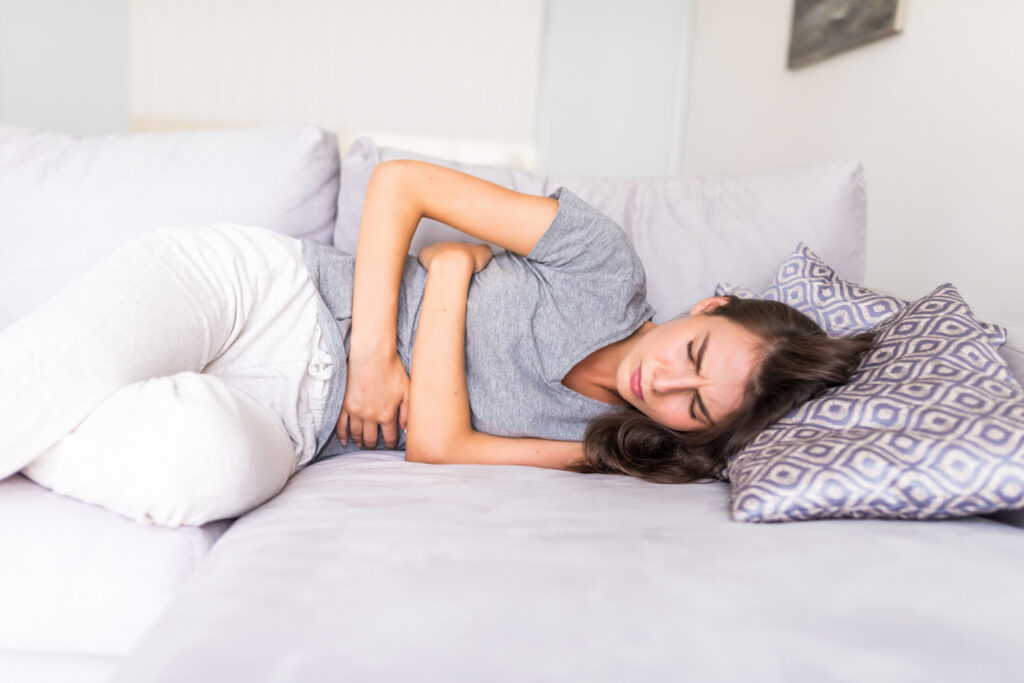
Fast Facts
The average adult passes gas 13-21 times a day
Common causes of gas include overeating, swallowing air, and certain foods
Conditions like IBS, lactose intolerance, and Crohn’s disease can cause excess gas
Over-the-counter remedies like activated charcoal and simethicone can help
Exercise and dietary changes are effective ways to reduce gas symptoms
Experiencing abdominal gas is quite common, and there are numerous home remedies and supplements available to help alleviate the discomfort. If these solutions don’t provide relief, it might be time to consult a healthcare professional.
Typically, adults pass gas between 13 and 21 times daily. This is a normal aspect of digestion. However, when gas accumulates in the intestines and can’t be released, it can lead to pain and discomfort.
Causes of Gas Pain and Bloating
Gas pain, bloating, and frequent flatulence can be aggravated by conditions causing diarrhea or constipation. Other factors include:
- Overeating
- Swallowing air while eating or drinking
- Chewing gum
- Smoking
- Eating certain foods
If your gas symptoms cause distress, change suddenly, or are accompanied by constipation, diarrhea, or weight loss, it’s important to see a doctor to determine the underlying cause.
10 Tips to Get Rid of Gas and Its Symptoms
Peppermint
Research suggests that peppermint tea or supplements can alleviate IBS symptoms, including gas. However, peppermint can interfere with iron absorption and certain medications, and it may cause heartburn in some people. Always consult your doctor before starting any supplements.
Chamomile Tea
Chamomile tea can reduce indigestion, trapped gas, and bloating. Drinking chamomile tea before meals and at bedtime might help lessen symptoms.
Activated Charcoal
Over-the-counter activated charcoal tablets can help eliminate gas trapped in the colon. These should be taken right before and one hour after meals.
Apple Cider Vinegar
Apple cider vinegar can combat bacteria that cause abdominal gas. Dilute a tablespoon in water or tea and drink before meals or up to three times daily.
Physical Activity
Exercise can help release trapped gas and relieve gas pain. Activities like walking after meals, jumping rope, or running can be effective.
Lactase Supplements
People with lactose intolerance can benefit from over-the-counter lactase supplements, which help digest lactose, the sugar found in milk.
Cloves
Clove oil can reduce bloating and gas by producing digestive enzymes. Add 2-5 drops to an 8-ounce glass of water and drink after meals.
Over-the-Counter Medications
Simethicone (found in products like Gas-X, Mylanta Gas, and Phazyme) consolidates gas bubbles in the stomach, making them easier to expel. Follow dosing instructions and consult a doctor if you’re taking other medications or are pregnant.
Beano is another option that contains an enzyme to break down sugars in beans and vegetables, reducing gas.
Prescription Medications
Depending on the cause of your gas, a doctor may prescribe medications for conditions like GERD, IBS, or IBD.
Diet
If gas isn’t due to an underlying medical condition, it might be diet-related. Keeping a food diary can help identify problematic foods, such as those high in fat or fiber, carbonated beverages, and beans. Adjusting your diet accordingly can help alleviate symptoms.
Conditions Causing Gas, Pain, and Bloating
Excess gas can be linked to various conditions, including:
- Gastroenteritis
- Lactose intolerance
- Celiac disease
- Crohn’s disease
- Diabetes
- Peptic ulcers
- Irritable bowel syndrome
Preventing Gas
If no medical condition is causing the problem, preventing gas may involve lifestyle and dietary changes
- Eat slowly and sit down during meals.
- Avoid swallowing air while eating and talking.
- Stop chewing gum.
- Avoid carbonated beverages and smoking.
- Incorporate exercise, such as walking after meals.
- Avoid foods known to cause gas.
- Don’t drink through straws.
A Quick Review
Gas pains and bloating are common issues caused by factors like overeating, swallowing air, and certain foods. Remedies include peppermint tea, chamomile tea, activated charcoal, and physical activity. Over-the-counter medications like simethicone and Beano can also help. If symptoms persist or are accompanied by other issues like weight loss, consult a doctor. Dietary changes, such as avoiding gas-producing foods, can significantly alleviate symptoms.











